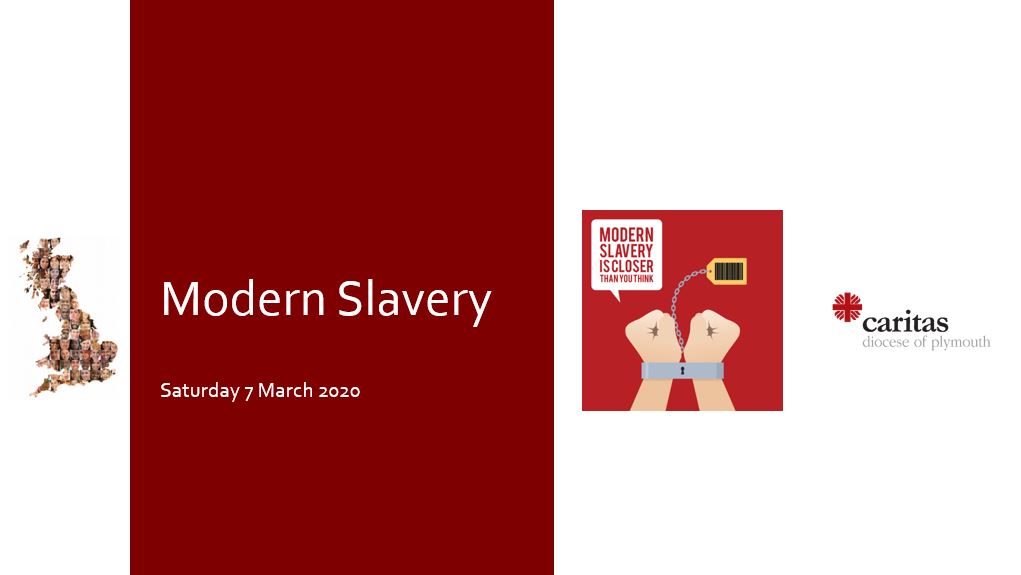Human trafficking and modern slavery are, in the words of Pope Francis, ‘grievous wounds in the flesh of humanity….in the flesh of Christ himself’. The Modern Slavery Event organised by Caritas Plymouth aimed to open people’s eyes to the extent of slavery in the UK and overseas, to share the work that the Catholic Church is doing and to inspire further action.
Today there are estimated over 40 million people in modern slavery around the world – around 136,000 in the UK. Modern Slavery encompasses many forms including forced labour, debt bondage, human trafficking, forced and early marriage.
The Right Reverend Mark O’Toole, Bishop of Plymouth, introduced the day saying this subject was very close to his heart. ‘Constant cost cutting creates an environment where slavery-tainted goods are hidden in layers of subcontracting and outsourced production. It is something perhaps we need to be more sensitive to when looking for that key bargain when shopping’
Bishop Mark challenged everyone to ‘break through the veil of indifference. We are all invited to become more aware of the extent of the problem and the suffering it causes.’ He placed the day under the protection and intercession of St Josephine Bakita who was sold into slavery as a child and encouraged us to renew ‘our efforts to free our brothers and sisters still caught in the scourge of modern slavery’.
Key speakers included The Medaille Trust, Stella Maris and Border Force. The Medaille Trust talked about their work in the UK with victims of modern slavery to help them recover and rebuild their lives and how much more they could do with more resources. They are the largest provider of supported safe house beds in the UK. Stella Maris (Apostleship of the Sea) shared how much they do on our behalf. Around a third of all seafarers are Catholic and the organisation works to reach the most vulnerable through a network of over 1000 port chaplains. Their Life at Sea report sets out the great work they do and how much more is needed to help a group of vulnerable people often hidden from sight.
Border Force reminded us that slavery takes many forms: people can be seen as a commodity and victims of forced labour or trafficking may also be victims of debt bondage. Victims may be offered a job abroad with “free” transportation, or they may borrow money from the employer for the travel and a job finding fee. Once they have arrived, they then find the job either does not exist or is not what was originally offered and are trapped trying to pay off the debt.
Participants at the event discussed what more we can do to help. We can pray for those affected by modern slavery; support Caritas and its partner charities through campaigning and fundraising; look out for the signs that someone may be a victim of modern slavery and report our concerns (the Citizens Advice Bureau has some great advice on how to approach this); buy fairly traded goods or purchase from companies which have a modern slavery policy in place. Every action can make a difference!
If you would like more information please contact the Caritas Manager, Deborah Fisher email caritas@prcdtr.org.uk or call 01364 645421.

